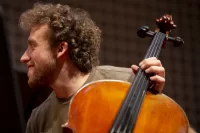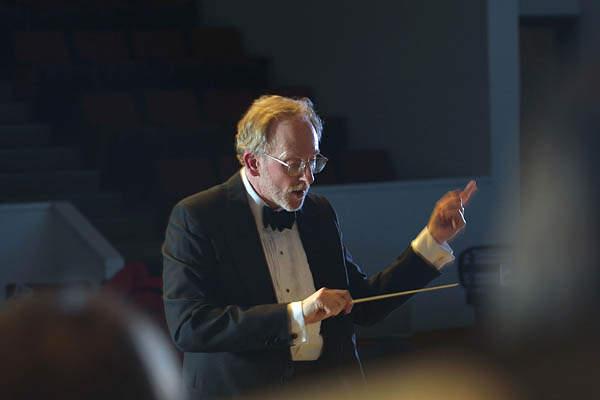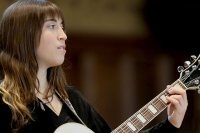
Bach’s ‘Magnificat,’ Vivaldi’s ‘Gloria’ on College Choir program
Directed by John Corrie, the Bates College Choir performs Antonio Vivaldi’s Gloria and Johann Sebastian Bach’s Magnificat in concert at 8 p.m. Saturday, Nov. 15, and 3 p.m. Sunday, Nov. 16, in the Olin Arts Center Concert Hall, 75 Russell St.
Admission is free, but tickets are required, available at bit.ly/oacbates. For more information, please contact 207-786-6135 or olinarts@bates.edu.
Both based on texts from the Christian tradition, the works are often programmed together. “They are very complementary to each other,” Corrie says. “And they are both monuments of the choral literature.”
Several Bates students will be featured as soloists:
In the Vivaldi, they are seniors Julia Eyman of Franconia, N.H., and Jackie Ordemann of Groton, Mass.; Caroline Paikoff, a junior from Davis, Calif.; and Madeline McLean, a sophomore from Hood River, Ore.
Soloists in the Bach are Eyman and McLean; and sophomores Amelia Green of Westport, Conn., and Ryen Martinez of Ridgewood, N.J.
A Baroque composer known nearly as much for the speed and profusion of his output as its artistic quality, Vivaldi was born in 1678 in Venice, where he spent virtually all his life, and died in 1741 in Vienna. He wrote three settings of the Gloria, part of the Roman Catholic Mass, during his long tenure as violin master at the Ospedale della Pietà, which was less a hospital than a residence for the mistresses and illegitimate daughters of Venetian noblemen.
Of Vivaldi’s three Gloria settings, one is presumed lost. Of the other two, the setting on the Bates program, RV 589, is by far the best-known. “The wonderfully sunny nature of the Gloria, with its distinctive melodies and rhythms, is characteristic of all of Vivaldi’s music, giving it an immediate and universal appeal,” writes Peter Carey of England’s Royal Free Singers.
The subject of numerous musical settings, the Magnificat — the Virgin Mary’s song in a response to the Annunciation — is one of the oldest Christian hymns and originally formed part of the Roman Catholic service of Vespers.
Born into an impressively musical family, Johann Sebastian Bach lived from 1685 until 1750. Written during his term as cantor of the Thomasschule in Leipzig and music director for the town’s churches, his original Magnificat was composed for the Christmas Vespers in 1723.
The composer later changed the key to the present D major, and edited the text to suit the piece for liturgical occasions all through the year. The work, Carol Talbeck wrote for the San Francisco Choral Society, “is an exhilarating and innovative ride through swift contrasts, alive with freshness and vitality, embodying Mary’s youthfulness in light of her profound task.”





